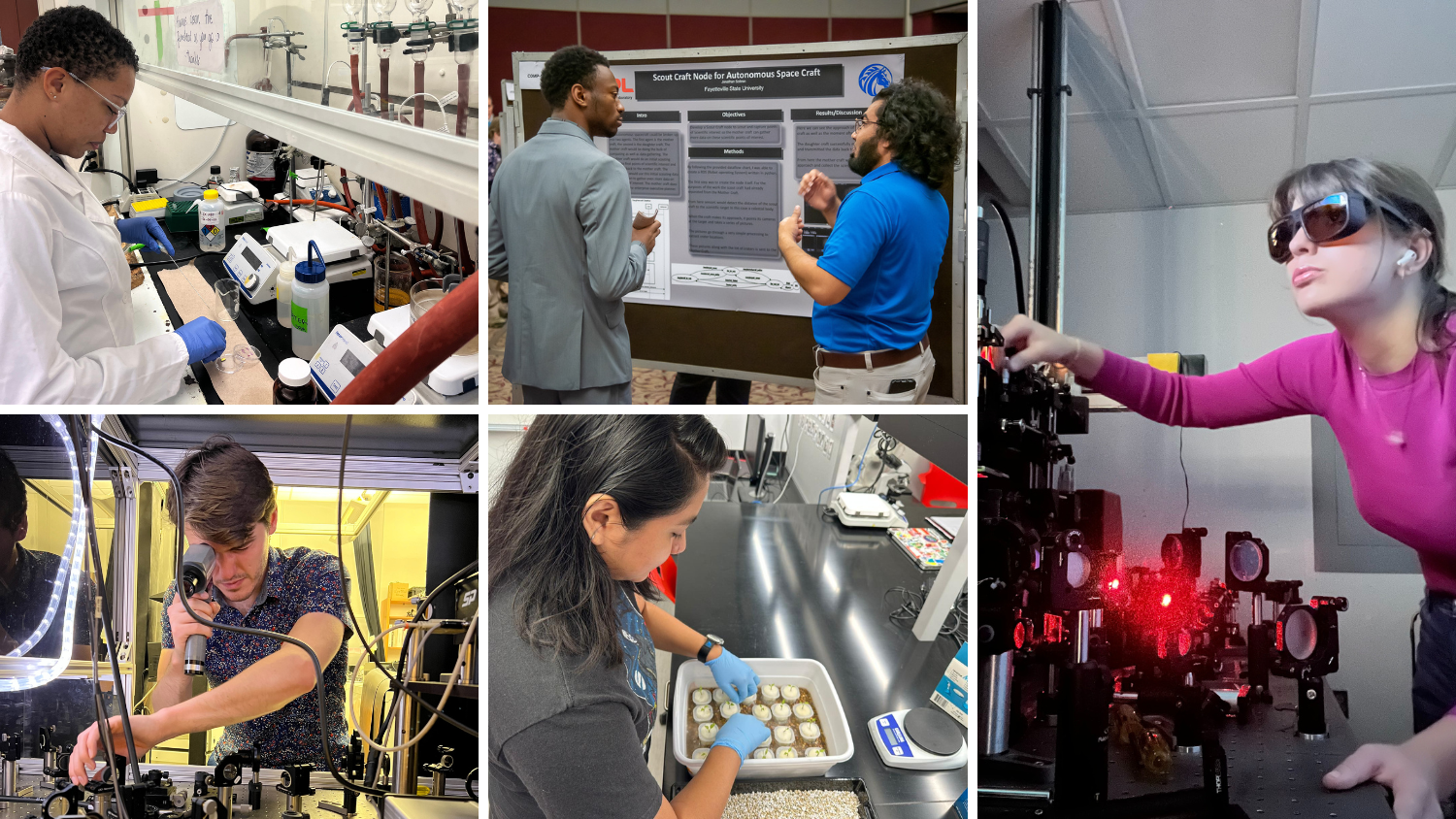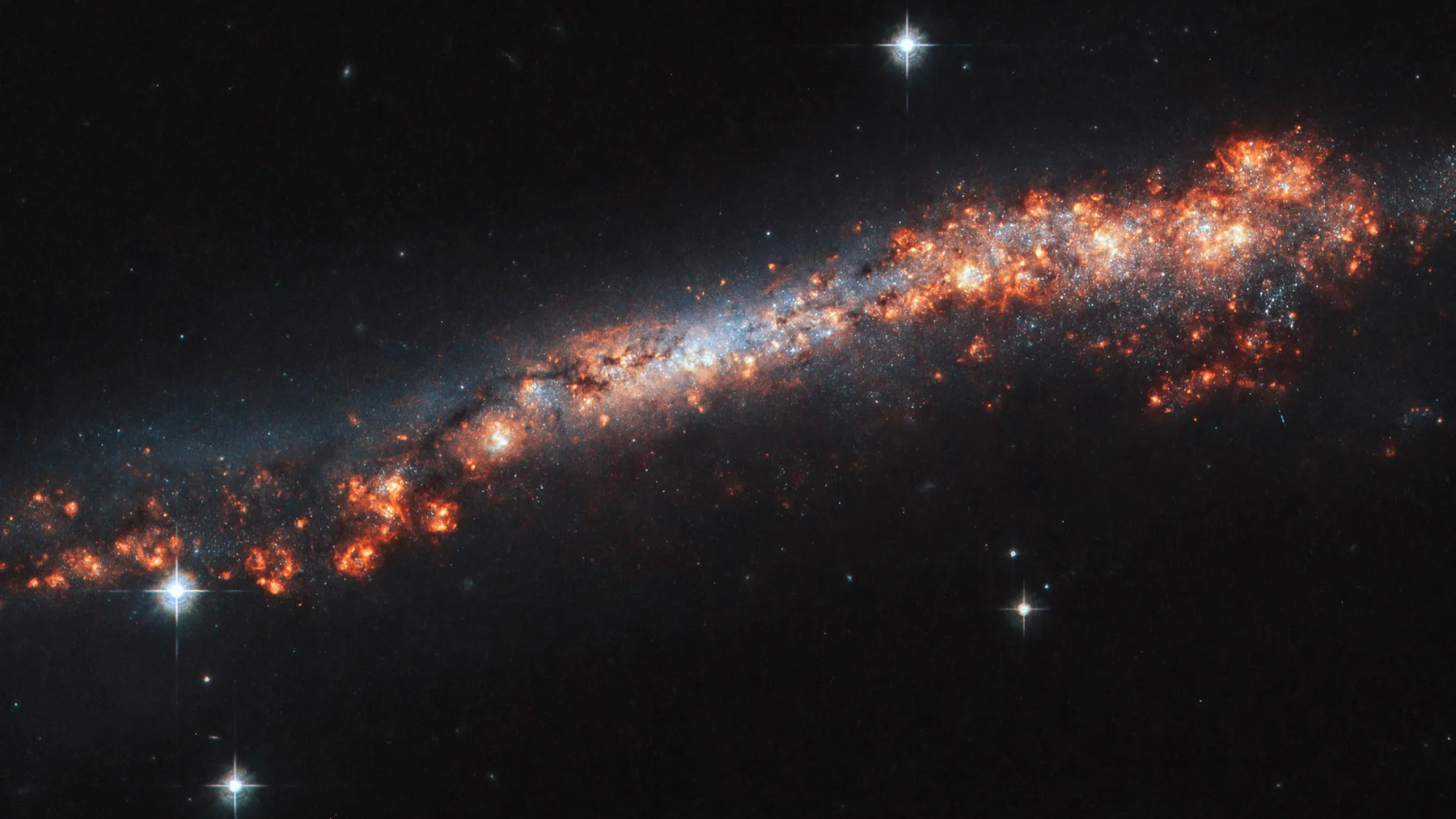NC Space Grant Celebrates 2021-2022 Sponsored Teams Achievements
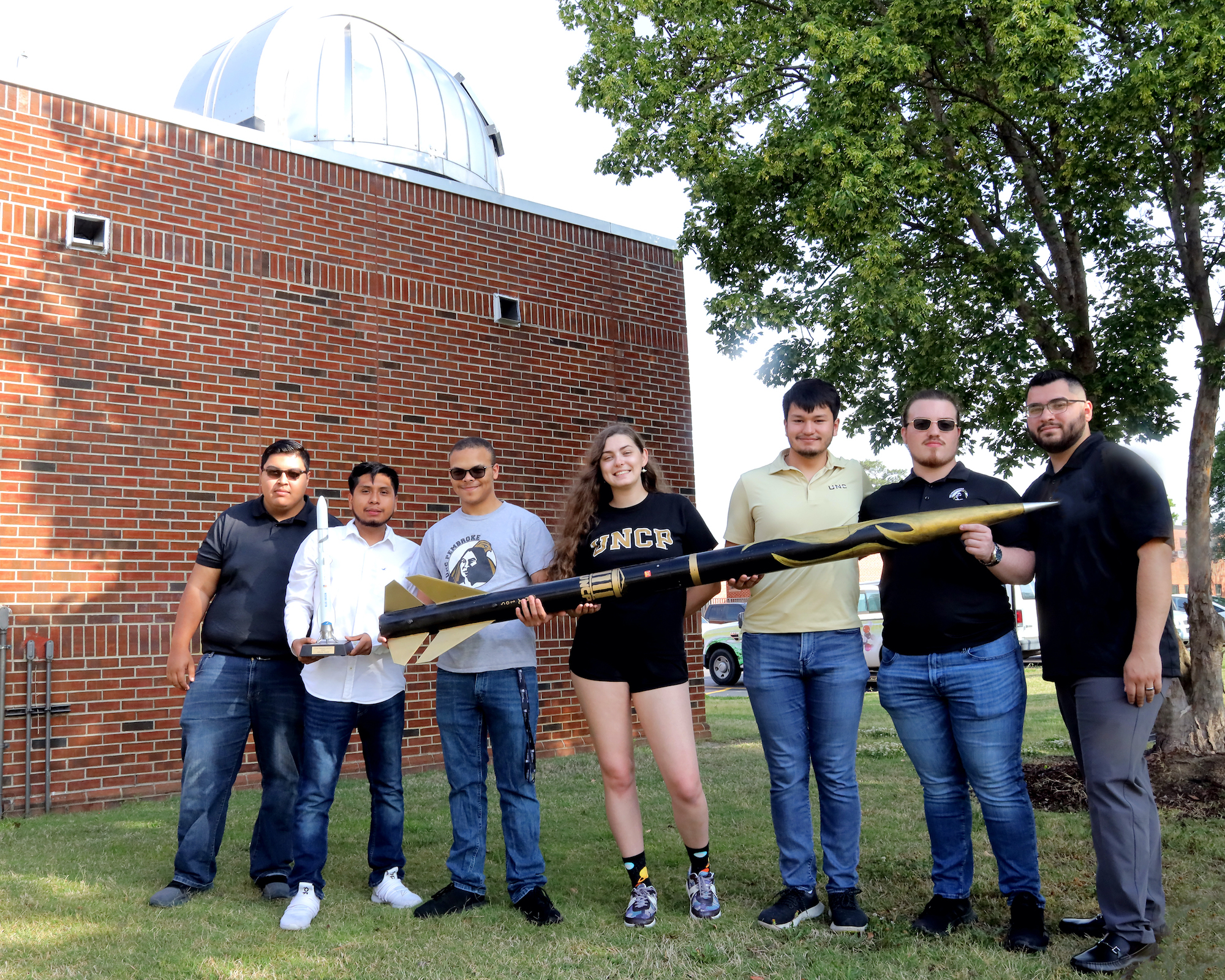
NC Space Grant is pleased to offer congratulations to eleven of our Team Experience and Competition sponsored student teams who have recently earned national honors. The teams participated in nine unique national and international competitions with focuses from lunar mining vehicles to autonomous underwater vehicles. One team, UNC Charlotte, has the distinction of placing first in the nation in the NASA Student Launch Competition for the second year in a row.
The Team Experience and Competition Awards fund undergraduate and graduate teams to help them participate in competitions either sponsored or sanctioned by NASA or other STEM-related organizations. These opportunities help students develop the skills and knowledge base, as well as build the strong teamwork capabilities, necessary to succeed in STEM careers in the future.
“Teams supported by NC Space Grant consistently receive top accolades from their respective competitions,” said Sandra Canfield, assistant director of NC Space Grant in charge of the Team Experience and Competition program. “But more importantly, students are learning critical academic and professional skills essential for success along their future career pathways.”
Congratulations to the following teams in their respective competitions!
NASA Student Launch Competition
The NASA Student Launch Competition is a year-long competition where teams design and build single stage, reusable high-powered rockets that fly at altitudes of 4,000 to 6,000 feet. Teams this year were also challenged to build a payload that could independently locate the rocket without the use of GPS.
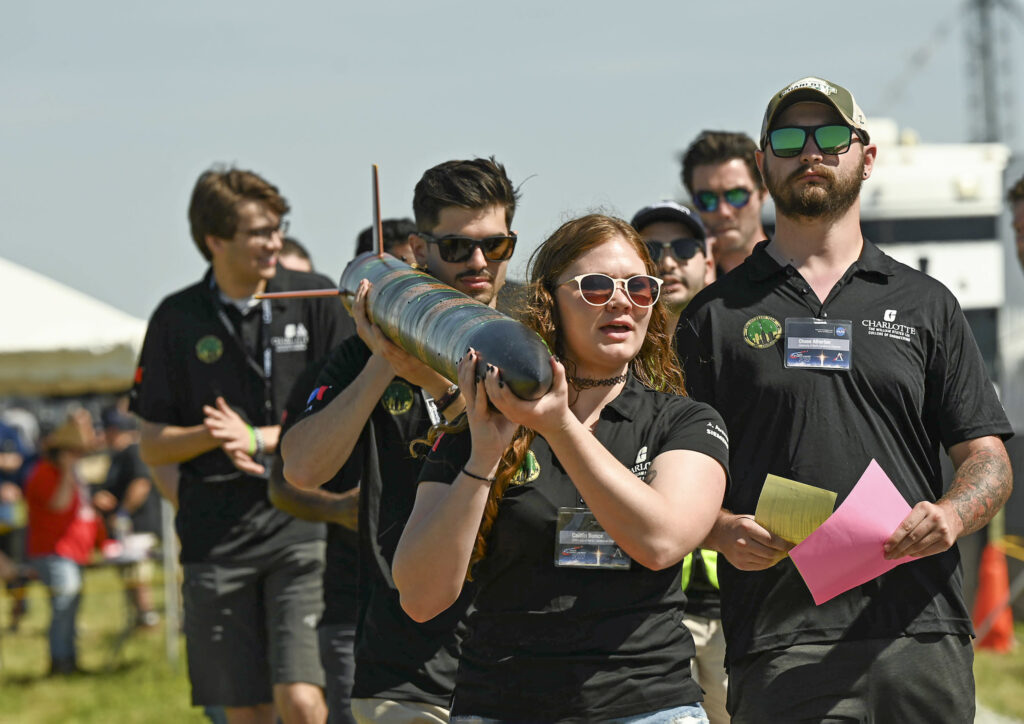
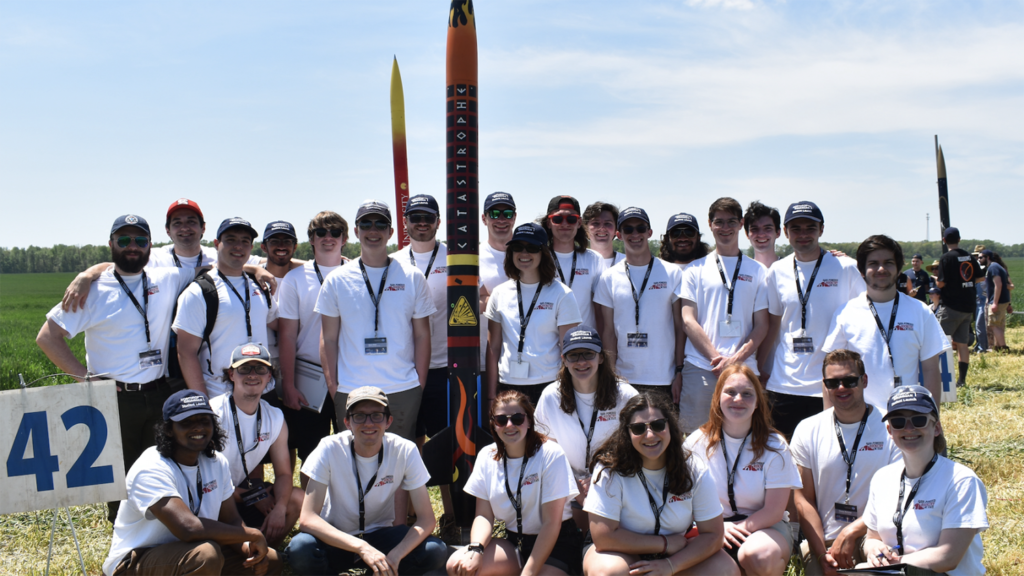
The UNC Charlotte Forty-Niner High-Power Rocketry Club and Senior Design Team traveled to the competition launch in Huntsville, Alabama and placed first overall in the nation for their rocket design. This year, the UNC Charlotte team also won the following awards at the competition (Read the UNC Charlotte press release here):
1st Place: Payload Design
1st Place: Altitude
2nd Place: Project Review
2nd Place: Best Looking Rocket
The NC State University High-Powered Rocketry Club also attended the launch in Alabama and won the following awards at the competition (Read the NC State press release here):
1st Place: Best Looking Rocket Award
1st Place: Social Media Award
2nd Place: Payload Design Award
2nd Place: Team Spirit Award
NASA MUREP Innovation Tech Transfer Idea Competition (MITTIC)
NASA MITTIC is a national competition that is aimed towards Minority Serving Institutions. Teams of students are challenged to develop and submit concept papers that explain the commercial viability of a proposed idea from a list of NASA’s Intellectual Properties. Up to eight winning teams then participate in a “Space Tank” to pitch their commercial ideas.
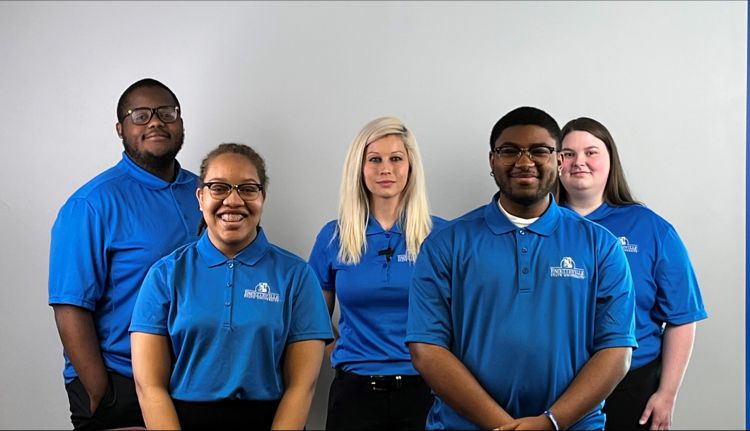
The Fayetteville State University team was selected among finalists to present their ideas at Johnson Space Center this year. Read the Fayetteville State University press release.
NASA Human Exploration Rover Challenge (NASA HERC)
The NASA HERC is a national competition that challenges students to design and build a human-powered vehicle that can travel the simulated terrain of another planet and to complete tasks along the way.
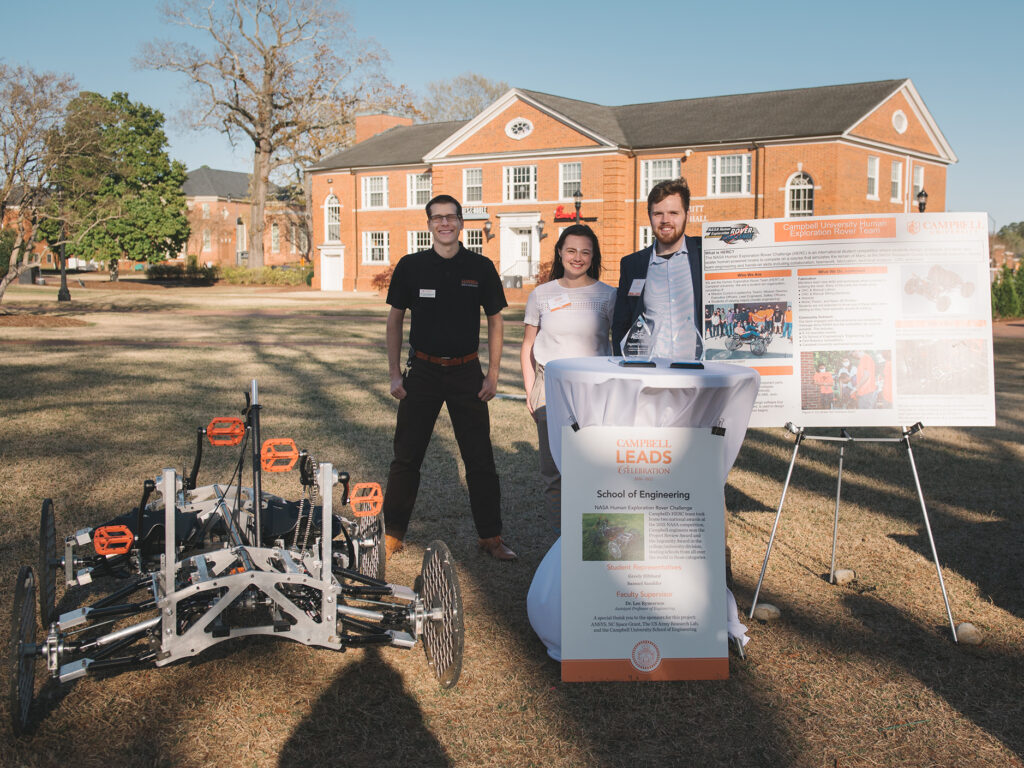
The Campbell University team placed third overall in the University category of the competition and won the award for the best 3D printed scientific instrument for a specific sample-collection challenge. Read the Campbell University press release.
First Nations Launch
Hosted by the Wisconsin Space Grant Consortium, the First Nations Launch is a competition that is aimed towards students from a Tribal College or University, a Native American-Serving Nontribal Institution, or who are members of an active American Indian Science and Engineering Society. Teams of students are challenged to design and construct a high-powered rocket that is then launched at the competition.
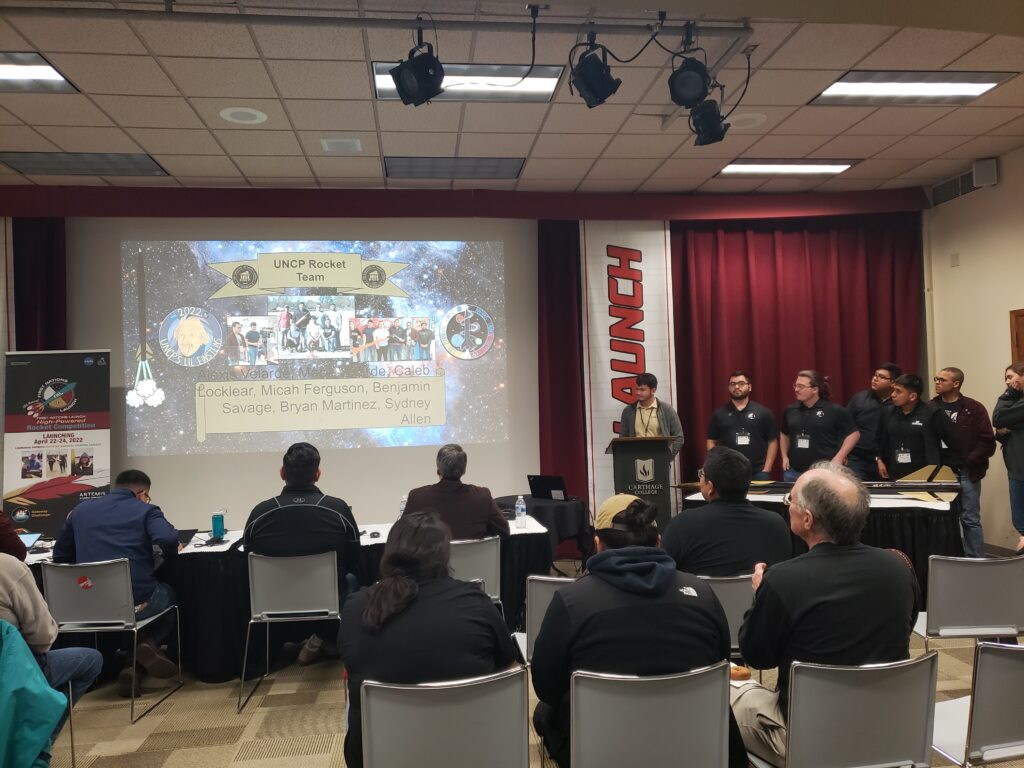
The UNC Pembroke Rocket Team participated in the Mars Engineering Challenge and received third place overall for the challenge and third place for the best oral presentation. The team also received the altitude award for the competition, presented to the team with an actual launch apogee that was closest to the predicted apogee–the highest point of a rocket’s flight–in their Flight Readiness report. Read the UNC Pembroke press release here.
2022 Spaceport America Cup
The Spaceport America Cup is an international competition that asks student teams to design, build, and fly a rocket that would be launched to altitudes of 10,000 to 30,000 feet.
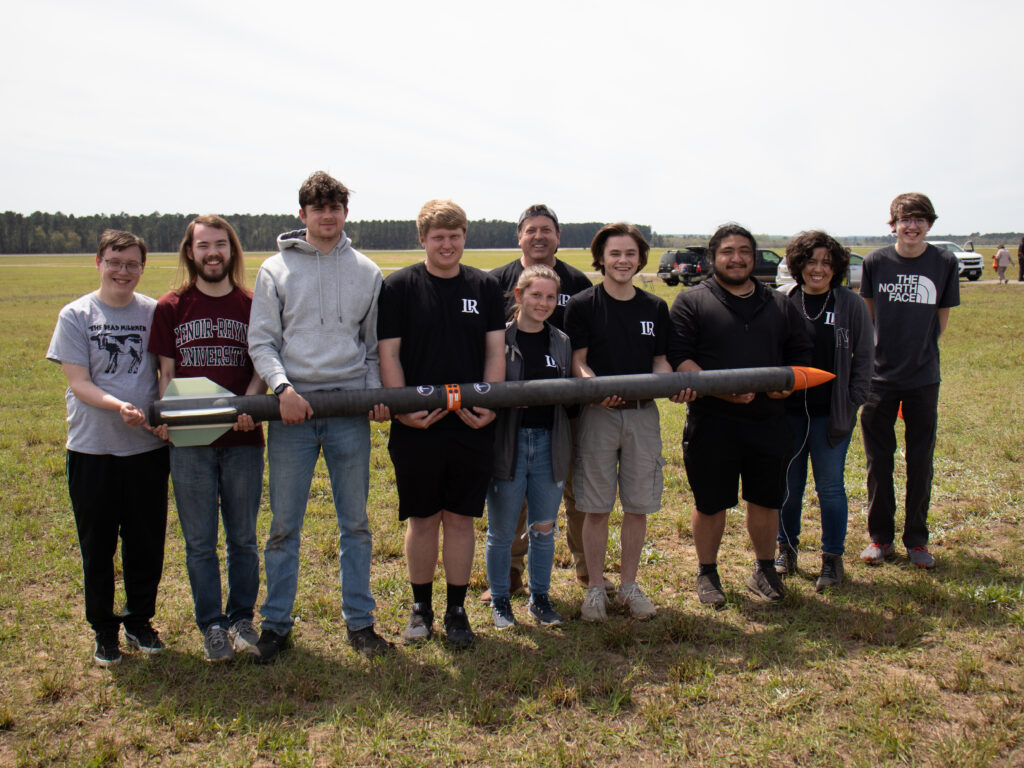
The Lenoir-Rhyne University Rocket Team competed within the 10K Current Off the Shelf Division (COTS) and successfully launched their rocket to an altitude of 9,300 feet. The team placed 22nd out of 46 teams within the 10K COTS division and finished 40th out of 99 overall teams that completed the competition. Read the Lenoir-Rhyne University press release here.
RoboSub
Robosub is an international competition that encourages teams to design, build and test an Autonomous Underwater Vehicle (AUV) to tackle a variety of challenges.
The NC State University Underwater Robotics Club placed fourth out of 39 international teams in the Design Documentation section of the event.
American Institute of Aeronautics and Astronautics Design/Build/Fly Competition (DBF)
The DBF Competition is an international competition that tasks student-led teams to design a fixed wing, remote-controlled aircraft that meets a list of requirements. For this year’s competition, students constructed aerial vehicles that were capable of carrying and deploying a humanitarian payload after landing.
NC State University’s DBF team’s proposal ranked 6th in the competition out of 97 teams.
Association for Unmanned Vehicle Systems International Student Unmanned Aerial Systems Competition (AUVSI SUAS)
AUVSI SUAS is an international competition that requires students to design, construct and launch an Unmanned Aerial System (UAS) capable of autonomous flight and navigation. Students must record and report the process of creating their UAS, and their UAS must complete a series of tasks for the competition.
NC State University’s Aerial Robotics Club ranked 26th out of 71 international teams overall, receiving 18th in the mission demonstration, 21st in the Flight Readiness Review, and 36th in the technical design paper category. Read the NC State University press release here.
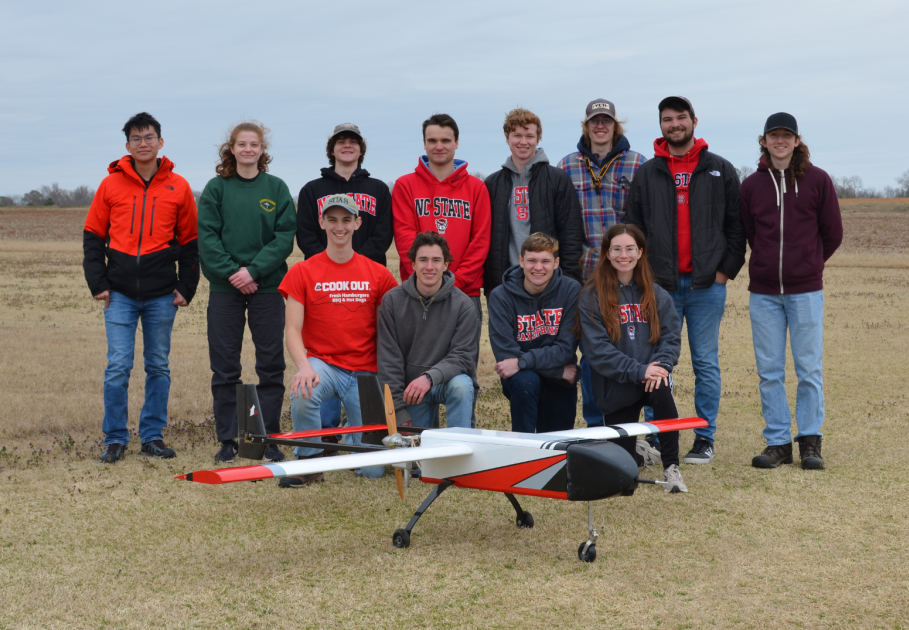
NASA Robotic Mining Competition (Lunabotics)
The NASA Robotic Mining Competition, also known as Lunabotics, is a national competition that asks student teams to design and build a robot that can mine simulated lunar matter.
UNC Asheville’s team was able to construct a fully-functioning robot that utilized the NASA System Engineering approach in the robot design.
UNC Charlotte’s team also participated in Lunabotics this year. Their rover, named Rover Digs BP, received the 4th place Autonomy Award at the competition. Read the UNC Charlotte press release here.
☽
